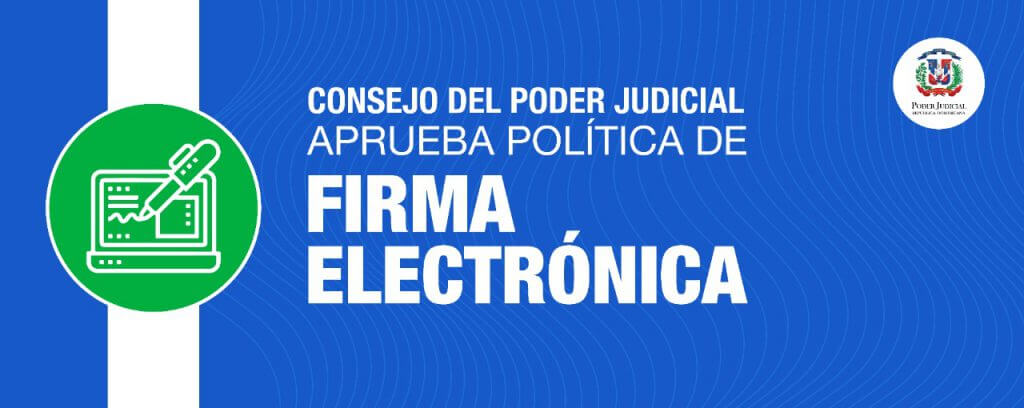The Judicial Council approved the policy for this modality, to be used in jurisdictional and administrative functions, valid for judges and other judicial servants.
SANTO DOMINGO (RD) - The Judicial Council approved on Tuesday, in its ordinary session 014-2020, the policy for the use of electronic signatures in jurisdictional and administrative processes, which will reduce the time needed to approve decisions and expedite their delivery to users.
The policy establishes "the general conditions applicable to the creation of electronically signed documents, the value that the institution grants to these documents, as well as the mechanisms available for the verification of the legitimacy of these documents by third parties".
The agency validated this framework instrument after a period of consultation and public hearings, open to the legal community and citizens from March 12 to 27. During the socialization process, coordinated by the General Technical Directorate, comments and observations were received from institutions, civil society organizations, users of the judicial service, as well as from the operational support bodies of the Judicial Branch.
With the approval of the Electronic Signature Policy of the PJ, the process for the development of technological support begins, which will be accompanied by training and awareness programs for internal users. Its implementation does not replace the procedures established in the regulations in force.
The electronic signature, which will be used for the first time in the national administration of justice, will help reduce the time needed to sign a decision, especially when several judicial servers are involved; speed up the issuance of certifications to third parties; and increase document security through a verification protocol.
All electronically signed documents will remain in PDF format and will be verified using the signature functions included in the PDF reader. With this tool, the user will be able to verify the qualified electronic seal, the validity of the identity of the signatory and the responsible body, as well as the absence of subsequent modifications.
In the case of paper copies, the final stamping of the document will provide information that will facilitate the verification of its fidelity to the digital original, following the instructions that will be available on the Judicial Branch website.
The establishment of the electronic signature is aligned with the second axis of the Vision Justice 20/24 Strategic Plan: "Timely and Efficient Judicial Service", whose products and lines of action emerged from a diagnostic, consultation and planning process developed last year.
This innovation will make it possible to establish digital information repositories, both of jurisdictional decisions and documents of an administrative nature. "All documents electronically signed as a result of the implementation of this policy will be valid after their incorporation into the digital repositories of the Judiciary," the policy states.

















